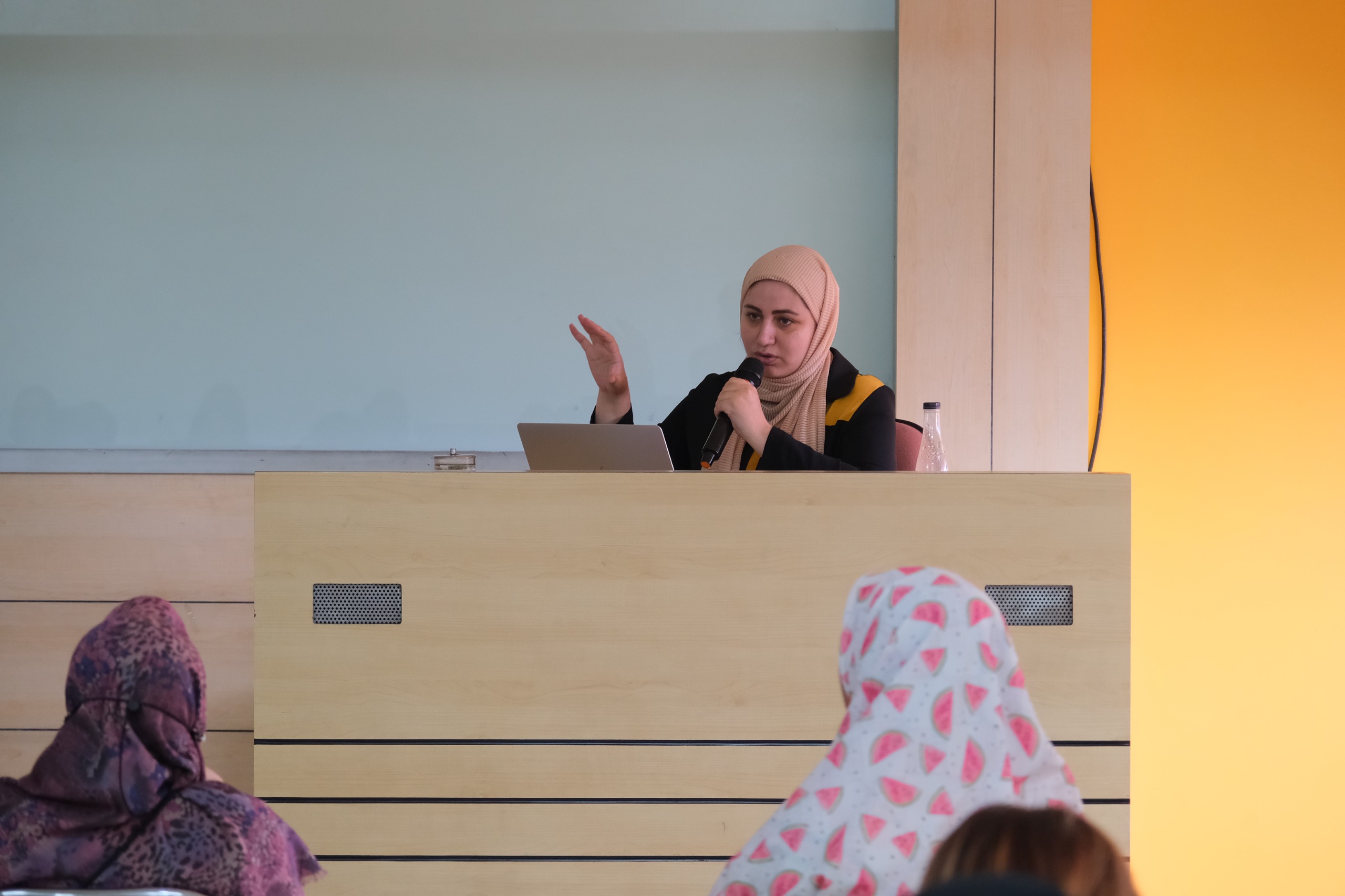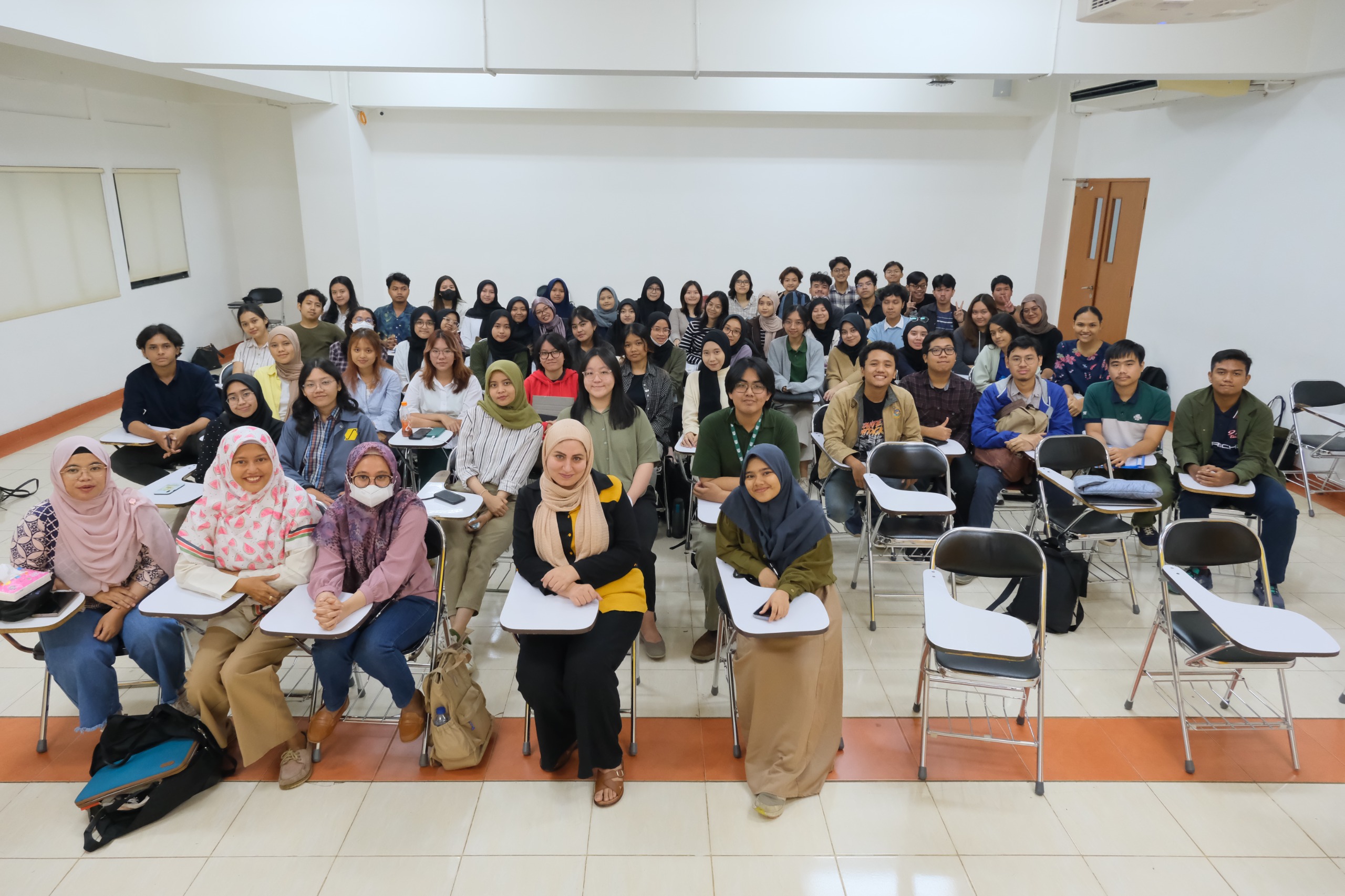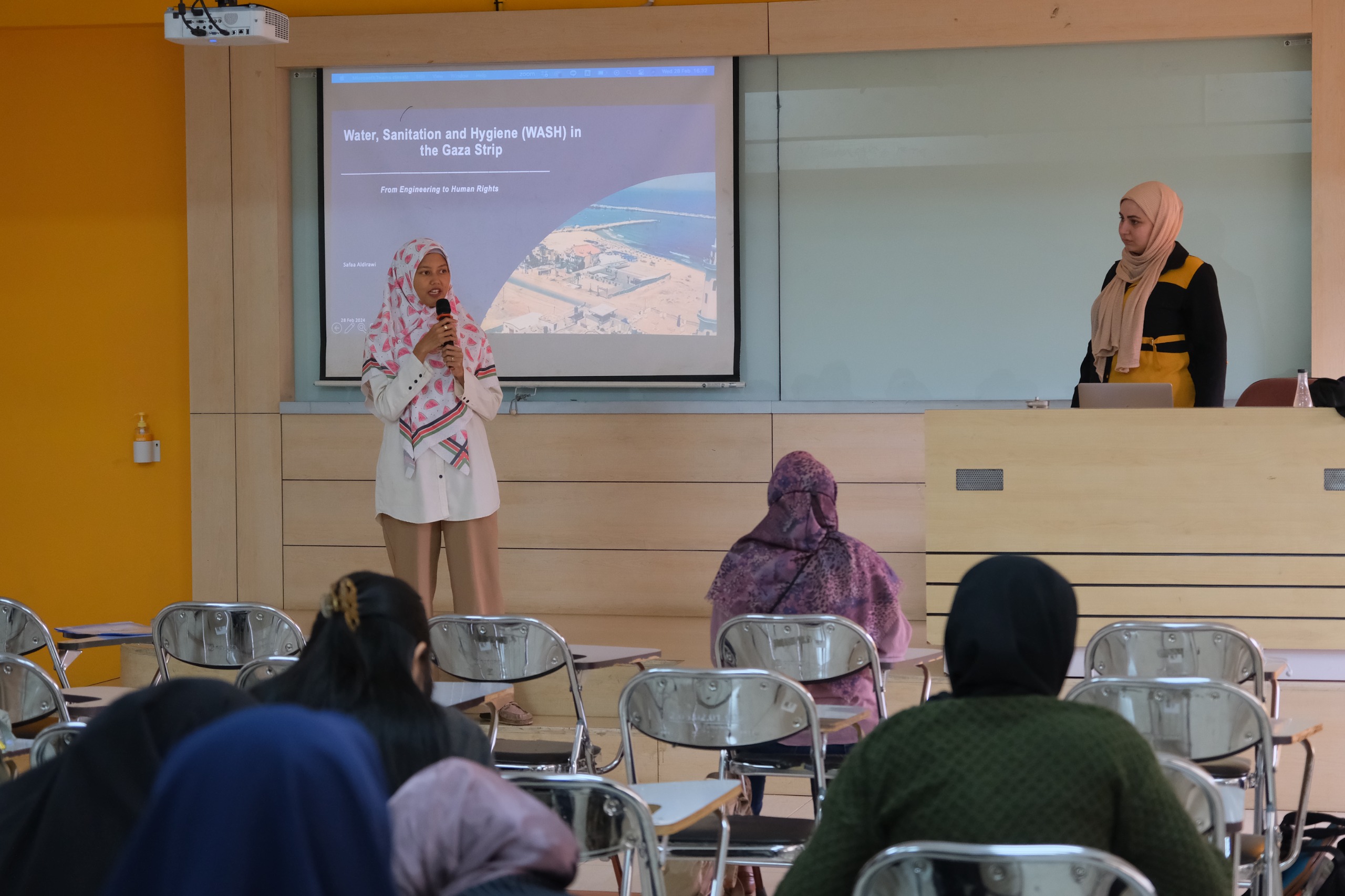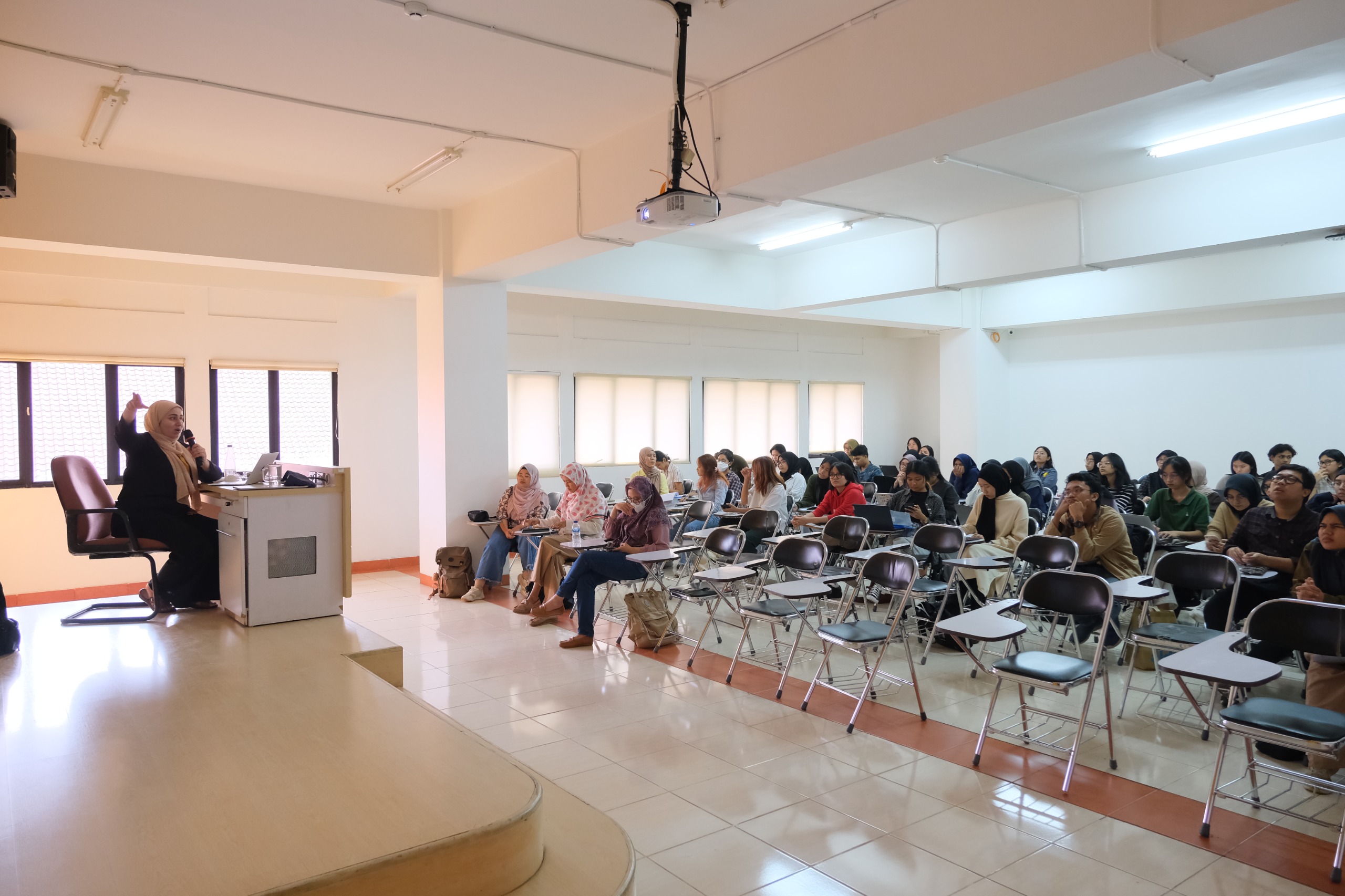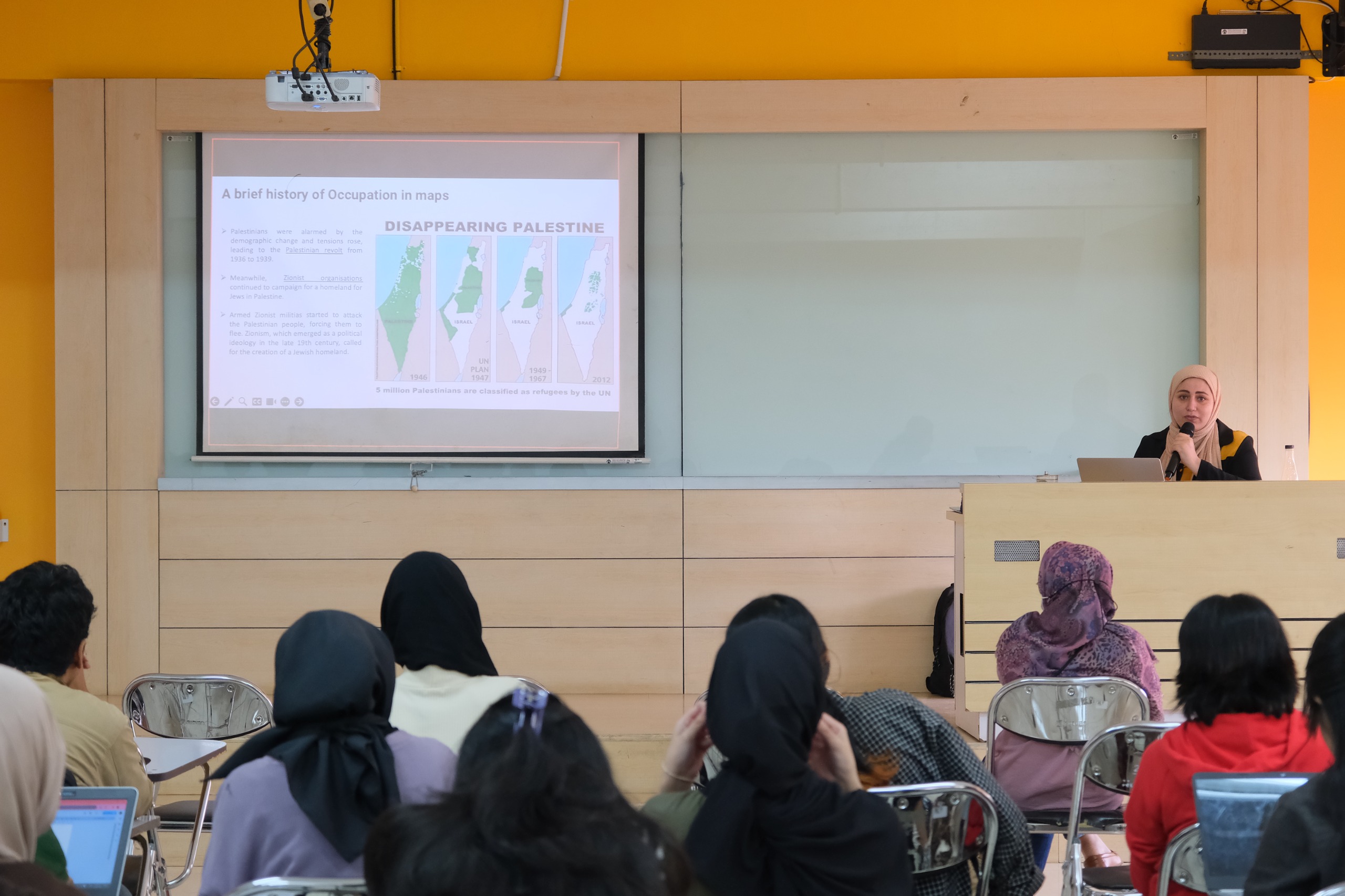On Thursday (2/28), the Environmental Engineering Program of the Department of Civil Engineering at the Faculty of Engineering, Universitas Indonesia (FTUI), hosted a lecture with a guest lecturer from the University of Technology Sydney, Safaa Aldirawi, M.Sc. The lecture was titled “Water, Sanitation, and Hygiene (WASH) in Gaza, from Engineering to Human Rights.” The lecture was conducted online via Zoom and offline in room S504 of Building S at FTUI from 4:30 to 6:00 PM WIB, attended by students from the Applied Sanitation course.
Before the lecture commenced, Dr. Cindy Rianti Priadi, S.T., M.Sc., Chair of the Environmental Engineering Program at FTUI, delivered her welcome address, stating, “In this lecture, Safaa will share her experiences as a Gaza resident and environmental engineering consultant, providing insights into the Gaza situation from various perspectives. We will also briefly explore Gaza’s history to understand why water has become an issue there. Safaa will then discuss the solutions that have been presented.”
“Because Palestine is a hot conflict zone and lacks sovereignty over its resources, especially water resources, power imbalances and political contexts significantly influence water governance. Through the Oslo Accords, the Palestinian Water Authority (PWA) was established and tasked with the development and management of all Palestinian water resources, including project implementation,” explained Safaa.
Currently, Palestinians are facing an escalating water crisis, dealing with significant challenges related to the decline in both the quantity and quality of groundwater. The water availability in Gaza does not meet the basic needs of the population. Due to seawater intrusion and other reasons, including urbanization, poor management, and wastewater contamination, the quality of groundwater in Gaza has drastically deteriorated, with only 4% of the water meets WHO standards for quality.
Safaa continued with examples of WASH projects implemented in the Gaza Strip. One of them is the Maia Project: Providing Clean Water for Palestinian Children. “The Maia Project provides safe drinking water for tens of thousands of Palestinian children by installing water purification and desalination units in schools across the Gaza Strip. The reverse osmosis process involves taking seawater, a highly concentrated solution, and forcing it through a membrane by adding pressure. On one side, we obtain salt-free water, while on the first side, the remaining water retains salt that cannot pass through the membrane,” she explained.
Another project is the USAID-funded RO Central Area Desalination Plant. This plant was expanded, initially having a capacity of 2,600 cubic meters of treated drinking water per day and increasing to 3,400 cubic meters per day. The work included new seawater intake wells, intake pipes, brine discharge pipes, disposal system, diffuser, workshop area, pretreatment building system, RO building system, chemical system, processed water system, electromechanical equipment, transportation of desalinated drinking water to existing mixing and storage reservoirs for further distribution to the central area.
The next project is the rainwater infiltration improvement in the Sheikh Radwan Reservoir. This project is one of the most important programs carried out by the Palestinian Water Authority, harvesting rainwater and surface water flow by building new dams and reservoirs, rehabilitating existing dams and reservoirs, and enhancing artificial groundwater recharge. Unfortunately, Gaza’s infrastructure in the past was designed to manage rainwater in several ponds and then pump it into the sea. The Sheikh Redwan Pond is the largest rainwater storage pond in the Gaza Strip, with a capacity of approximately 960,000 m³. The pond is located in the northwest of Gaza.
Safaa Aldirawi is a Palestinian environmental engineer and researcher with a strong commitment to advancing water, sanitation, and hygiene (WASH) practices, integrated water management, and international development. With a diverse background spanning the Gaza Strip, Australia, and the Netherlands, Safaa has experience applying hydraulic engineering techniques and hydrological methods to assess water resources, with a focus on groundwater to improve WASH services. She utilizes quantitative and qualitative research skills to develop evidence-based policy practices and water management strategies in diverse geographic conditions.
Currently, Safaa is pursuing a Ph.D. at the Institute for Sustainable Futures at the University of Technology Sydney, studying critical issues related to the impact of climate change on groundwater. Her research explores transformative adaptation approaches to independent groundwater supply systems in Indonesia, aiming to promote more resilient services in the face of climate change.
Office of Public Communication
Faculty of Engineering, Universitas Indonesia

